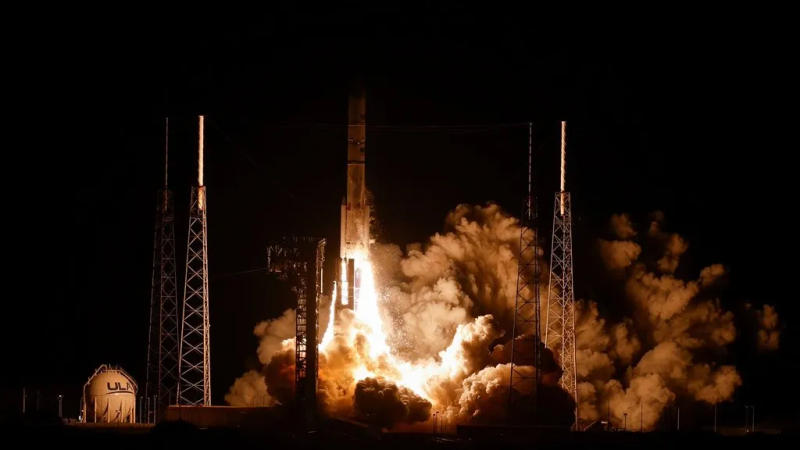Published 13:49 IST, January 8th 2024
First US lunar lander in more than 50 years rockets toward moon with commercial deliveries
The initial U.S. moon lander in over five decades headed to the lunar destination on Monday, Jan. 8 sparking a new space race for private firms.

The initial U.S. moon lander in over five decades headed to the lunar destination on Monday, Jan. 8 sparking a new space race for private firms in delivering payloads for NASA and others. Astrobotic Technology's lander hitched a ride on the fresh Vulcan rocket by United Launch Alliance. The rocket soared through the Florida dawn, propelling the spacecraft on a circuitous route to the moon, aiming for a potential landing on Feb. 23.
Pittsburgh-based Astrobotic aspires to be the inaugural private entity to achieve a successful lunar landing, a feat only four countries have accomplished. However, a Houston company also has a ready-to-launch lander and might outpace it, opting for a more direct trajectory.
"First to launch. First to land is TBD" to be determined, remarked Astrobotic CEO John Thornton.
NASA granted millions to both companies for constructing and launching lunar landers. The agency aims for privately owned landers to survey the lunar surface before astronauts arrive, delivering NASA technology, scientific experiments, and miscellaneous payloads for other customers. Astrobotic's contract for the Peregrine lander is valued at $108 million.
Last US moon-landing mission
The last U.S. moon-landing mission was in December 1972, concluding with Apollo 17's Gene Cernan and Harrison Schmitt as the 11th and 12th men on the moon. NASA's Artemis program, named after Apollo's twin sister in Greek mythology, plans to return astronauts to the lunar surface in the coming years, starting with a lunar fly-around.
Vulcan rocket blasts off
Monday's significant event included the delayed test flight of the Vulcan rocket from Cape Canaveral Space Force Station. The 202-foot rocket is an upgraded version of ULA's Atlas V, with engines provided by Jeff Bezos' Blue Origin. The Soviet Union, the U.S., China, and India have achieved moon landings, with China joining in 2013 and India in 2023. Last year witnessed both Russian and Japanese private companies attempting lunar landings, while an Israeli nonprofit crashed in 2019.

Plans for upcoming months
In the upcoming month, SpaceX is set to launch a lander for Intuitive Machines. The Nova-C lander's more direct route may lead to simultaneous landing attempts within days or hours. The challenging hourlong descent to the lunar surface is anticipated to be "exciting, nail-biting, terrifying all at once," according to Astrobotic CEO John Thornton.
Aside from carrying NASA experiments, Astrobotic has established its own cargo business, loading the 6-foot-tall Peregrine lander with diverse items, including a chip of rock from Mount Everest, toy-size cars from Mexico, and the ashes and DNA of deceased space enthusiasts like "Star Trek" creator Gene Roddenberry and science fiction writer Arthur C. Clarke.
The Navajo Nation sought a launch delay due to human remains, considering it a "profound desecration" of a celestial body revered by Native Americans. Despite December objections, Thornton promised to find a respectful path forward for future missions. Celestis, a spaceflight memorial company, argued that no single culture should veto a mission to the moon.
Cargo fares for Peregrine varied from a few hundred dollars to $1.2 million per kilogram, insufficient for Astrobotic to break even on this first flight. However, Thornton emphasized that many people's dreams and hopes are riding on this mission.
Updated 13:49 IST, January 8th 2024



